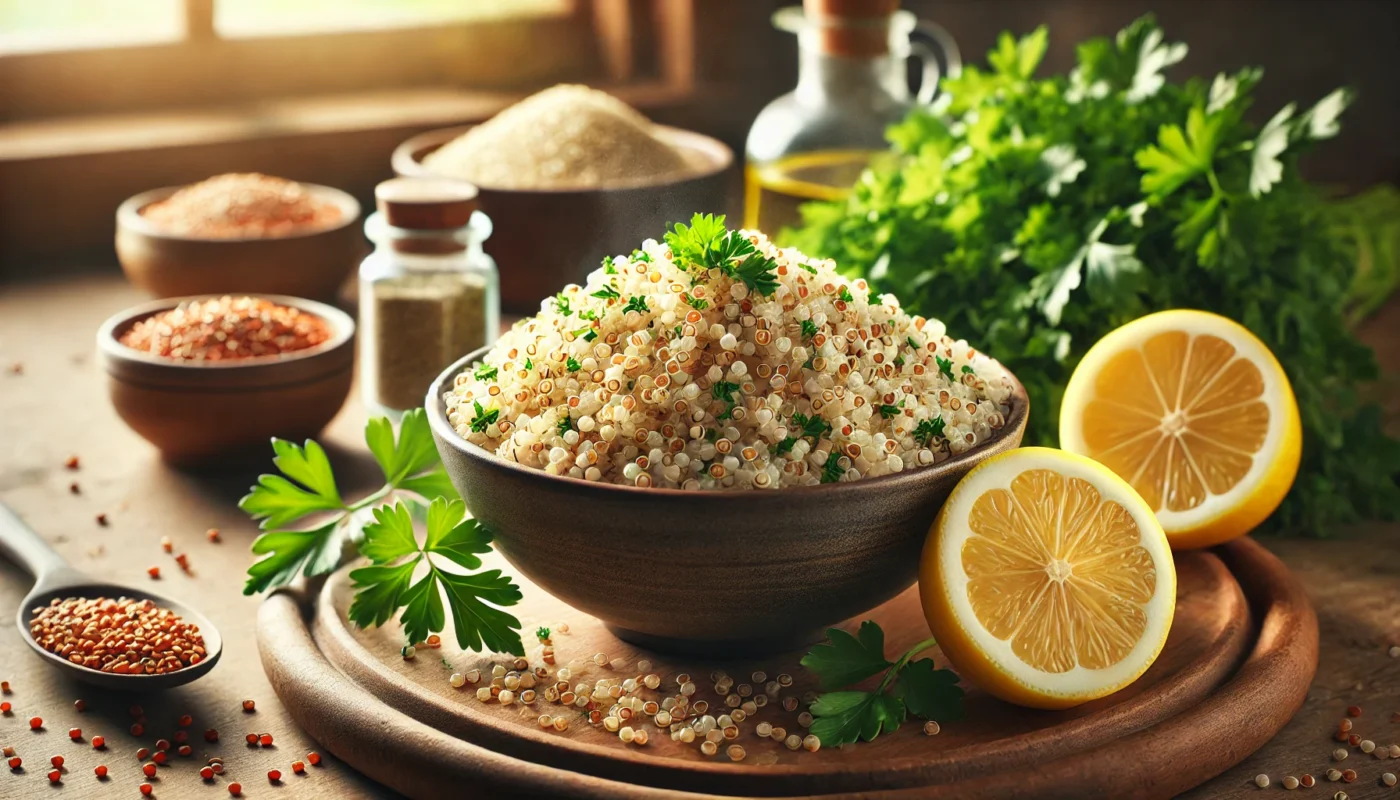Inflammation is a natural response by your body’s immune system to fight off harmful stimuli such as pathogens, damaged cells, or irritants. It’s an essential process that promotes healing. However, when inflammation becomes chronic, it can lead to a host of health complications, impacting quality of life.
Acute vs. Chronic Inflammation
Acute inflammation is the body’s immediate response to injury or infection, characterized by redness, heat, and swelling. This type of inflammation is generally short-lived and resolves once the underlying issue is addressed. In contrast, chronic inflammation is a prolonged inflammatory response that can persist for months or years, often without obvious symptoms. It can contribute to the development of diseases like arthritis, heart disease, and diabetes.
The Role of Diet in Managing Inflammation
Diet plays a significant role in either exacerbating or alleviating inflammation. Foods high in sugars, refined carbohydrates, and unhealthy fats can promote inflammation, while a diet rich in fruits, vegetables, whole grains, and healthy fats can have the opposite effect. Understanding these dietary influences is crucial for anyone looking to manage inflammation through lifestyle changes.
Health Conditions Linked to Inflammation
Chronic inflammation is associated with various health conditions, including cardiovascular diseases, autoimmune disorders, and even certain cancers. The persistent inflammatory response can damage healthy cells, tissues, and organs, ultimately leading to serious health issues. Recognizing the link between inflammation and these conditions is vital for prevention and management strategies.
You May Also Like: Inflammatory Diseases: Causes and Treatments Explained
Quinoa: A Nutritional Powerhouse
Quinoa is not just a trendy superfood; it’s a nutritional powerhouse packed with proteins, essential amino acids, vitamins, and minerals. It contains all nine essential amino acids, making it a complete protein source—an attribute particularly beneficial for those on plant-based diets. Additionally, quinoa is rich in fiber, which aids digestion, and contains antioxidants that combat oxidative stress.
Complete Protein Source
Quinoa’s status as a complete protein source is one of its most remarkable nutritional attributes. This means it provides all the essential amino acids that the body cannot synthesize on its own. This makes quinoa particularly valuable for vegetarians and vegans seeking plant-based protein sources to meet their dietary needs.
Vitamins and Minerals
Quinoa is rich in essential vitamins and minerals such as magnesium, iron, B-vitamins, and manganese. These nutrients are crucial for maintaining various bodily functions, from energy production to bone health. Consuming quinoa regularly can help fill nutritional gaps in the diet and support overall well-being.
Fiber and Digestive Health
The high fiber content in quinoa supports digestive health by promoting regular bowel movements and preventing constipation. Fiber also plays a role in maintaining a healthy weight by promoting feelings of fullness and reducing overeating. Incorporating quinoa into meals can contribute to a balanced diet that supports gut health.

The Anti-Inflammatory Components of Quinoa
The anti-inflammatory potential of quinoa can be attributed to several key components:
Saponins: More Than Just Bitterness
Saponins are phytochemicals present in quinoa that have traditionally been seen as a cause of bitterness. However, recent studies suggest that saponins possess antioxidant and anti-inflammatory properties. They may help reduce inflammation by inhibiting the release of inflammatory molecules in the body, contributing to quinoa’s health benefits.
Polyphenols: Potent Antioxidants
Quinoa is rich in polyphenols, including quercetin and kaempferol. These compounds are powerful antioxidants that help protect cells from oxidative stress and reduce inflammation at the cellular level. By neutralizing free radicals, polyphenols support the body’s natural defense mechanisms against chronic inflammation.
Omega-3 Fatty Acids: Supporting Heart Health
While quinoa isn’t as rich in omega-3s as some seeds, it does contain alpha-linolenic acid, a type of omega-3 fatty acid. This compound is known for its ability to reduce inflammation and support cardiovascular health. Including quinoa in a balanced diet can contribute to heart health by providing these beneficial fatty acids.
Can Quinoa Cause Inflammation?
A common concern among health-conscious individuals is whether quinoa can cause inflammation. Generally, quinoa is considered anti-inflammatory, but individual responses can vary.
Individual Sensitivities
Some people might experience digestive discomfort due to quinoa’s saponin content. These naturally occurring compounds can irritate the digestive tract in sensitive individuals. However, symptoms can often be mitigated by thoroughly rinsing the seeds before cooking, which helps remove most of the saponins.
Listening to Your Body
It’s essential to pay attention to how your body responds to quinoa. If you experience discomfort after consuming quinoa, consider adjusting your preparation methods or consulting a healthcare professional. Personalized dietary adjustments can help ensure you reap the benefits of quinoa without adverse effects.
Consulting with Healthcare Professionals
If you’re managing a medical condition or have specific dietary concerns, it’s always wise to consult with a healthcare professional before making significant changes to your diet. They can provide personalized advice based on your health needs and help you make informed dietary choices.

Scientific Studies Supporting Quinoa’s Anti-Inflammatory Effects
Several studies have explored quinoa’s impact on inflammation:
Animal Studies: Insights into Quinoa’s Effects
A 2016 study published in the Journal of Medicinal Food evaluated the anti-inflammatory effects of quinoa in an animal model. The researchers found that quinoa consumption significantly reduced the levels of pro-inflammatory cytokines, indicating its potential to mitigate inflammation. These findings provide a foundation for further research into quinoa’s health benefits.
Human Studies: Quinoa and Oxidative Stress
Another study in 2018 investigated the effects of quinoa on oxidative stress and inflammation in overweight and obese individuals. Participants who incorporated quinoa into their diet showed reduced markers of oxidative stress and inflammation, suggesting quinoa’s beneficial role in managing these conditions. These results highlight quinoa’s potential to support health in human populations.
The Need for Further Research
While current studies show promise, more research is needed to fully understand the extent of quinoa’s anti-inflammatory effects in humans. Continued exploration will help clarify its role in disease prevention and management, ultimately guiding dietary recommendations.
Practical Tips for Incorporating Quinoa into Your Diet
Now that we know quinoa’s potential benefits, let’s talk about how to incorporate it into your diet. Here are some practical tips:
Start Your Day Right
Use quinoa as a base for a nutritious breakfast bowl. Combine it with fruits, nuts, and a drizzle of honey or maple syrup for a filling start to your day. This wholesome meal provides a balance of protein, fiber, and healthy fats to keep you energized and satisfied.
Enhance Your Salads
Add cooked quinoa to salads for extra texture and protein. It pairs well with a variety of vegetables and dressings, creating a satisfying meal that’s both nutritious and delicious. Experiment with different combinations to find flavors you love.
Substitute for Grains
Use quinoa as a substitute for rice or pasta in your meals. Its nutty flavor complements many dishes, and it cooks faster than most grains. This versatile ingredient can be used in stir-fries, stews, and as a side dish to enhance your meals with added nutrients.
Try Quinoa Flour
Explore baking with quinoa flour as a gluten-free option. It adds a nutritional boost to baked goods like bread and muffins, providing extra protein and fiber. Quinoa flour can be used in combination with other flours to achieve desired textures in your favorite recipes.

Conclusion: Embracing Quinoa for Health and Wellness
Quinoa’s potential anti-inflammatory effects, combined with its rich nutritional profile, make it a valuable addition to a balanced diet. While individual responses can vary, the majority of evidence suggests that quinoa can contribute positively to managing inflammation and promoting overall health. As always, it’s essential to approach dietary changes thoughtfully and consult with a healthcare professional if you have specific health concerns.
Incorporating quinoa into your meals is not just a trend—it’s a step towards embracing a holistic approach to health and wellness. Whether you’re a fitness enthusiast, health aficionado, or managing a medical condition, quinoa offers a versatile and nutritious option to enhance your diet.
By understanding the science behind quinoa and its effects on inflammation, you can make informed decisions that support your journey to improved wellbeing.
With its myriad benefits and culinary versatility, quinoa might just be the superfood you’ve been looking for to support your health goals. Embrace quinoa as part of a nutritious and balanced diet, and discover the positive impact it can have on your health and wellness journey.
Further Reading:
Nutritionist Resource: Five reasons to eat quinoa
EatingWell: What Happens to Your Body When You Eat Quinoa Every Day
National Library of Medicine: Quinoa whole grain diet compromises the changes of gut microbiota and colonic colitis induced by dextran Sulfate sodium in C57BL/6 mice
quinoa, anti-inflammatory, nutrition, health benefits, chronic inflammation, dietary management, superfoods, plant-based diet, antioxidants, digestive health, inflammation, wellness, healthy eating, recipes, vitamins and minerals
Important Note: The information contained in this article is for general informational purposes only, and should not be construed as health or medical advice, nor is it intended to diagnose, prevent, treat, or cure any disease or health condition. Before embarking on any diet, fitness regimen, or program of nutritional supplementation, it is advisable to consult your healthcare professional in order to determine its safety and probable efficacy in terms of your individual state of health.
Regarding Nutritional Supplements Or Other Non-Prescription Health Products: If any nutritional supplements or other non-prescription health products are mentioned in the foregoing article, any claims or statements made about them have not been evaluated by the U.S. Food and Drug Administration, and such nutritional supplements or other health products are not intended to diagnose, treat, cure, or prevent any disease.

